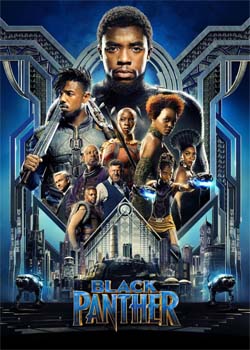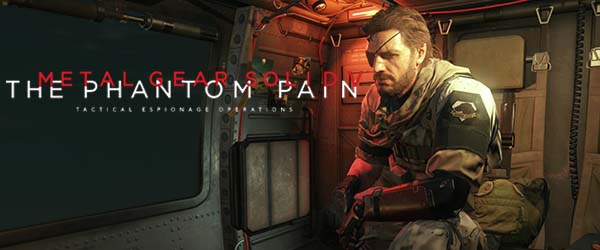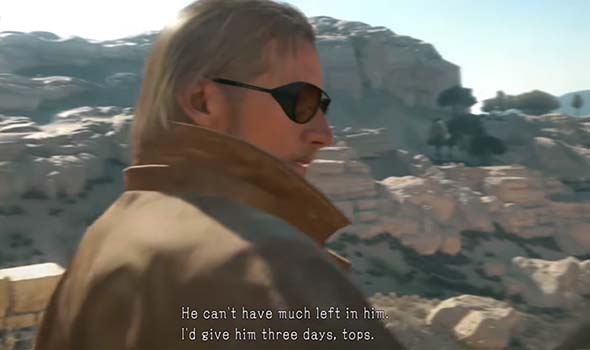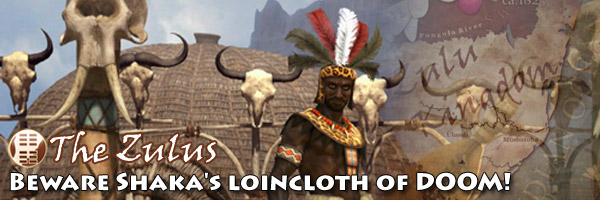
After a couple years of rumors, Colossal Order has finally officially announced a sequel to Cities: Skylines. I would have thought that this would mean the end of new content for the first Cities: Skylines. But instead, we've seen a deluge of new content from the studio. I already reviewed the Plazas & Promenades expansion from last fall, but that expansion was followed by a "World Tour" of new content.
Most of this content comes in the form of "content creator packs", which are assets that were originally created by modders, but which Paradox and Colossal Order have bought and are selling in packs (and giving full credit to the creators, and presumably a cut of the sales). It's nice to see some big-name modders getting this formal recognition in the game, and an opportunity to profit a little bit from their hard work.
But there has also been some first-party content in the form of a mini-expansion called Financial Districts. This DLC adds a stock exchange, banks, and the ability to invest city funds into an in-game stock market. There is also another full expansion called Hotels & Retreats, but I'll be reviewing that separately.
Colossal Order is releasing one final barrage of DLC and mini-expansions before releasing a full sequel.
Insider trading
I'm going to start with the Financial Districts DLC, since it's the only content in this review that is actually first-party content created by Colossal Order, and it's the only of these DLCs that actually has any new rules and mechanics associated with it. The rest are all just collections of assets. Financial Districts isn't a full expansion. It's more in-line with previous DLC like the Match Day or Concerts DLC, in that it adds only one very specific thing, and a couple new mechanics.
This expansion adds a new type of office specialization: the titular Financial Districts. This district creates tall skyscrapers which belong to banking and investment firms. These buildings also generate increased tax revenue if near one of the expansion's ploppable buildings, the Stock Market. Combined with the "Tax Increase for Offices" policy, these districts can be incredibly profitable for the city.
Financial districts include tall office buildings for banks, investment firms, and the like.
As for the Stock Market itself, it allows the city to invest in a variety of fictional stocks for companies that supposedly exist in the city. Different stocks unlock based on the level of the Stock Market or based on certain criteria within the city (such as having enough of a certain type of building. The Stock Market is basically a cheat device for earning more money for your city. The performance of the various stocks all depend on factors within the city that the player has a degree of control over. For example, the player could bulldoze all your hospitals, let the healthcare stock crash, buy a bunch of it, then re-build those hospitals, and sell the stock after it shoots up. You can then also bulldoze the hospitals again and repeat the process until you have as much money as you want. The player can also affect the value of various stocks by simply increasing or decreasing the relevant budget sliders. [More]
c7a88169-4959-4ab6-af13-efa3b87d2518|12|2.7
Tags:Cities: Skylines, financial districts, skyscrapers, seaside resorts, mid-century modern, shopping malls, Korea, Japan, Africa, sports, stock exchange, bank

It's really getting hard to imagine Marvel and Disney ever genuinely screwing one of these movies up. I keep expecting that the next Marvel movie is going to be the one that finally breaks the camel's back and brings the whole enterprise crashing down. It's getting increasingly difficult to trust or like Disney as it grows into even more of a massive corporate conglomerate that keeps devouring and controlling pop culture media. From its virtual monopoly on childhood fairy tale and story-book imagery, to its ownership of cultural touchstones like Star Wars, to its success with Marvel, to its plans to purchase Fox's film studios and all the properties therein (Alien vs Predator vs Guardians of the Galaxy, anyone?), Disney is growing scarily large and powerful and owns far too much of our shared pop culture. Heck, Disney also owns ESPN and therefore has a controlling stake in how our non-fiction cultural entertainment is presented to us as well! This gives the Disney Corporation a potentially-dangerous, unprecedented influence on the world's collective cultural consciousness.
After the Fox buy-out, Disney and its subsidiaries could own up to 40% of every movie that comes to theater screens, and the studio's growing monopoly on blockbusters could translate to a virtual monopoly in cinemas in general. With so much theater revenue coming from Disney movies, theaters are forced to accept distribution deals that are increasingly one-sided in Disney's favor.
Because of all this, I find myself actually hoping to a certain degree that Disney and Marvel finally screw one of these up and release a flop of Batman v Superman proportions. I keep hoping for its tightening grip on cinemas to loosen and allow other competitors to finally step up and put Disney in its place. Once again, that hasn't happened.
Black Panther expertly straddles several different film genres. Most obviously, it's a comic book superhero movie (d'uh). But it's also a very mythological movie, and also sci-fi futurism (from a rarely-seen Afro-futurist perspective). And there's a large spy thriller chunk in the middle that could have been pulled straight from a James Bond movie, complete with a Q stand-in reviewing the hero's new gadgets, and culminating in a super-powered car chase through an exotic foreign city. There's also a Shakespearean bent that comes from the themes of living up to one's father's legacy, dealing with a monster of your own making, and noble intentions going awry. It all works pretty well, with only a few minor stumbles.
Part mythologic super hero story, part sci-fi futurism, part James Bond spy thriller.
I'm not sure how much of the production design was handled by individuals who are black or African or of direct African descent (or if it was a bunch of white guys in a conference room wondering "what would African futurism look like?"), but the end result seems (from my perspective as being descended from white European imperialists) to be very faithful and respectful. It's also a visual treat. I felt like some of the Vibranium technological gimmicks were a bit "too much" for a setting that is supposed to be our contemporary world. Specifically, the magic balls that can apparently instantly heal fatal wounds strained my credulity quite a bit, especially since I don't think the movie ever really explained what Vibranium does or what it's actual limitations are. Then again, this is the umpteenth installment in a series that has World War II super-soldiers, men flying around in robot suits of armor, literal Norse gods descending from literal Asgard, magic space rock MacGuffins, space aliens, and even literal magic. A little suspension of disbelief is to be assumed... [More]
e1168620-d264-4c4b-a058-572b72f1e19f|0|.0
Tags:Black Panther, Disney, Marvel Comics, comic book, Chadwick Boseman, T, Challa, Michael B Jordan, Killmonger, Andy Serkis, Wakanda, Africa, Vibranium, science fiction, futurism, James Bond, social justice

Are you one of the poor suckers who paid $30-40 for Ground Zeroes and were ready for The Phantom Pain to make up for your disappointment with what was little more than a glorified (and over-priced) demo? I wasn't, because I got Ground Zeroes for free from my PSPlus subscription around the same time that Phantom Pain was released. I was obviously disappointed with the demo's short length, and I didn't bother doing any of the side missions. But since I didn't pay for it, I wasn't as enraged as some other players might have been.
I actually really liked what little gameplay Ground Zeroes had to offer. The Guantanamo Bay arena was well-designed and offered some good infiltration challenge that tested my Metal Gear capabilities. The A.I. was surprisingly competent and adaptive - not so much that I couldn't exploit them occasionally, but still good. The graphics, lighting, and weather effects all looked outstanding. It was a fun experience. Not "forty dollars fun", but pretty fun. At least part of the battle at Mother Base should have been playable, and I didn't like that large elements of the story were hidden away in collectible audio tapes, but whatever.
I got Ground Zeroes for free on PSPlus, instead of paying $30-40 MSRP for a glorified demo.
Ground Zeroes gave me flashbacks to the phenomenal classic Sons of Liberty demo that came packaged with Zone of the Enders on the PS2. At least that only cost me a $3 rental, and I got to play Zone of the Enders too. After Ground Zeroes, I was looking forward to getting my hands on the much bigger Phantom Pain, and was optimistic that it would provide an equally good experience that would be worth the purchase price. Phantom Pain is a very long, very complicated, and very uneven game. So buckle up, friend. This is going to be a long review.
Table of Contents
After having written a lengthy blog post about how open world, sandbox game design almost necessarily puts the game's narrative in a state of limbo, I was amazed to start up Metal Gear Solid V and see the very first mission took my criticisms to heart. Of course, the game had already been released by the time I had written that opinion piece, so I can't take credit for having influenced its development, but it was still refreshing and gratifying. Anyway, in the very first mission, Ocelot tells you that Miller has been captured by Soviets in Afghanistan, has been tortured for intel, and has three days - tops - to live. You must rescue him before that time.

Ocelot gives the player three days to rescue Miller...
At first, I didn't put much stock in Ocelot's claim. After all, sandbox games are notorious for saying that something needs to be done ASAP, but they never have the balls to actually walk the walk and enforce that objective. Until now. When checking my map, I noticed something in the corner that I hadn't noticed in other sandbox games before: an "elapsed time" counter. The game was plainly tracking how long it was taking me to complete the primary mission objective. I treated this timer with a certain degree of skepticism. But sure enough, failure to rescue Miller within the allotted time actually results in a "Game Over"!
This is exactly how I feel that priority objectives in open world games should be handled: make it apparent to the player (through dialogue and/or explicit notification) that an objective is being timed or that it is otherwise a priority, and make sure that there are reasonable, perceivable consequences for failure to achieve that objective within the expected conditions. Then design some early-game quests or objectives such that the player is put in a position in which they can (or must) fail; thus, teaching the player that when the game says "do x or else", the game actually means it. I put down the controller and gave Hideo Kojima a standing ovation. But would this opening mission set a precedent that priority missions must actually be prioritized, and would that precedent stand throughout the rest of the game? Or was this just a one-off occurrence that would not be representative of the rest of the game? Regardless, a tone was plainly set for the rest of the game, and the stakes had been raised.
... Failure to rescue Miller within the allotted time results in his death and a Game Over.
Would this refreshing precedent carry over into the rest of the game? Well, sort of... [More]
11c3f412-b61e-422f-96c9-742ddb50d6fb|5|4.2
Tags:Metal Gear, Metal Gear Solid, Metal Gear Solid V: the Phantom Pain, Konami, Hideo Kojima, Fox Engine, tactical espionage operations, tactical espionage action, espionage, stealth, snake, Big Boss, Revolver Ocelot, Quiet, dog, Diamond Dogs, Afghanistan, Africa, open world, desert, sandbox, Fulton Recovery System, balloon, horse, Mother Base, helicopter, Soviet Union, Skull Face, Cipher, Zero, Sahelanthropus, Keifer Sutherland, David Hayter, ludonarrative, ludonarrative harmony, FOB, online, PvP, Metal Gear Online

Rounding out my series of strategy posts about Brave New World's new civilizations, here is the Zulu. But first, I want to take a moment to thank the readers and everyone who has provided feedback and constructive criticism for these posts. When I first started with Assyria, I wasn't sure if I'd bother doing any other civs at all - let alone all of them! But people read the posts and encouraged me to keep writing them, and now they are among the most popular posts on this blog! I have been very humbled and gratified with the responses that I have received. I'd like to specifically thank all of those who posted suggestions and feedback on the forums. I really appreciate your participation. Many of your ideas and strategy alternatives have been incorporated into revisions of these posts, and I've taken your criticisms to heart in writing the subsequent posts. I'd also like to thank the fine folks at PolyCast, who have taken the time to discuss and publicize these posts, as well as provide additional feedback. Keep up the good work!
As for my future plans: I expect to take some time away from Civ to catch up on some other games, like Dark Souls II and some Steam games that I've had sitting on my computer for a while (like Europa Universalis IV). I also intend to get back into modding and some other personal projects. This does not mean that I am completely done with Civ V strategies though. I do intend to look at some of the civs whose strategies were significantly changed by the Brave New World expansion (particularly France and Arabia, whose uniques were redesigned). I will continue to write strategies as time permits, and will continue to check the forums and comments and possibly update these posts if readers provide new insights. Thanks again, and keep on Civin'!.
Now, without further ado, the Zulu!
Little is known about the regions of southern Africa prior to European invasions and colonization. The region was divided up into small tribes and kingdoms, but they kept very few written records of their histories. In the early 19th century, the Zulu Kingdom (lead by Chief Shaka) came to dominate large chunks of the eastern coast of southern Africa. Shaka's successors expanded the kingdom through wars with rival tribes and European settlers for almost a century before the British offered an ultimatum in 1878 to King Cetshwayo regarding a territory dispute between the Zulu and the Boers (Dutch settlers in Africa). Cetshwayo rejected the terms of the ultimatum, leading to the Anglo-Zulu war. The Zulu won an early victory, overwhelming the British with their tactics and sheer numbers, handing the British their single worst defeat to a native African fighting force. In the long-term, however, the Zulu were incapable of standing up to the British army that was equipped with firearms. The British sieged the Zulu capital, Ulundi, exiled King Cetshwayo to Cape Town, and divided the Zulu Empire into 13 "kinglets". This lead to internal conflict between the kinglets, forcing the British to reinstate Cetshwayo as the King of the Zulu. But conflict continued, and Ulundi was again sieged by one of the kinglets and Cetshwayo was killed. When the Union of South Africa was formed, the Zulu Kingdom stopped being recognized as a sovereign power, although several Zulu kings did retain significant influence in the region through the middle of the 20th century.

Shaka kaSenzangakhona was the first King of the Zulu Empire. He united several small tribes and then initiated significant military, spiritual, and cultural reforms. He used innovative and highly-aggressive military tactics to conquer neighboring tribes and establish the Zulu Kingdom as a dominant force in the southern Africa region. He was a brutal and efficient leader and introduced the iklwa stabbing spear and large cowhide shields that allowed his soldiers to quickly surround their enemies and engage in visceral close-quarters combat. His impi soldiers employed a novel "bull horn" formation consisting of three parts:
- the "chest" was the main force composed of senior soldiers who would engage the enemy to keep them pinned and immobile,
- the "horns" were squads of young, fast warriors who would flank the enemy that was engaged with the chest,
- and the "loins" were a reserve force behind the chest and with their backs to the battle who would defend the army from flanking maneuvers and chase down escaping enemies.
These tactics proved incredibly useful to Shaka and to his successors (even against the muskets of European invaders), and it was even used to crush the British in the opening battle of the Anglo-Zulu war. However, these tactics could not survive against the killing efficiency of more advanced firearms and cannons and were eventually abandoned. [More]
6c911954-01d0-47d1-9bc6-d03b1185221c|9|5.0
Tags:Sid Meier's Civilization, Civilization V: Brave New World, Civilization V, Zulu, Shaka, Iklwa, Ikanda, Impi, spear throw, unit maintenance, war, warmonger, promotion, buffalo, buffalo horns, buffalo chest, buffalo loins, melee, flanking, Africa, barracks, pikeman, Civ-V
|

| 12 | | | | | | | 60 | | 11 | | | | | | | 55 | | 10 | | | | | | | 50 | | 09 | | | | | | | 45 | | 08 | | | | | | | 40 | | 07 | | | | | | | 35 | | 06 | | | | | | | 30 | | 05 | | | | | | | 25 | | 04 | | | | | | | 20 | | 03 | | | | | | | 15 | | 02 | | | | | | | 10 | | 01 | | | | | | | 05 |
|